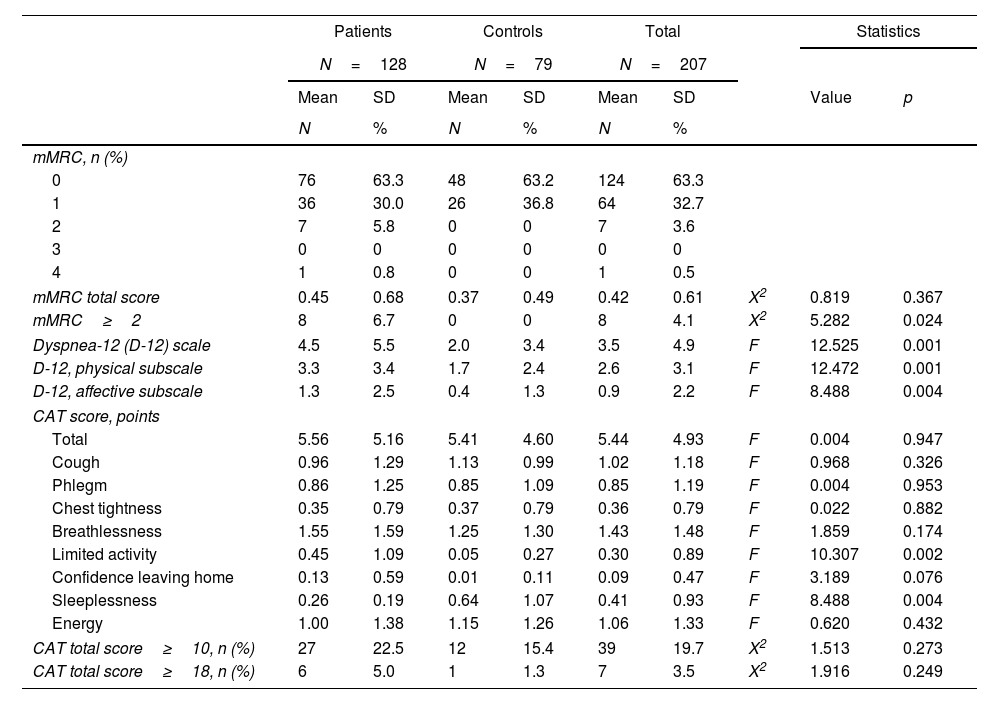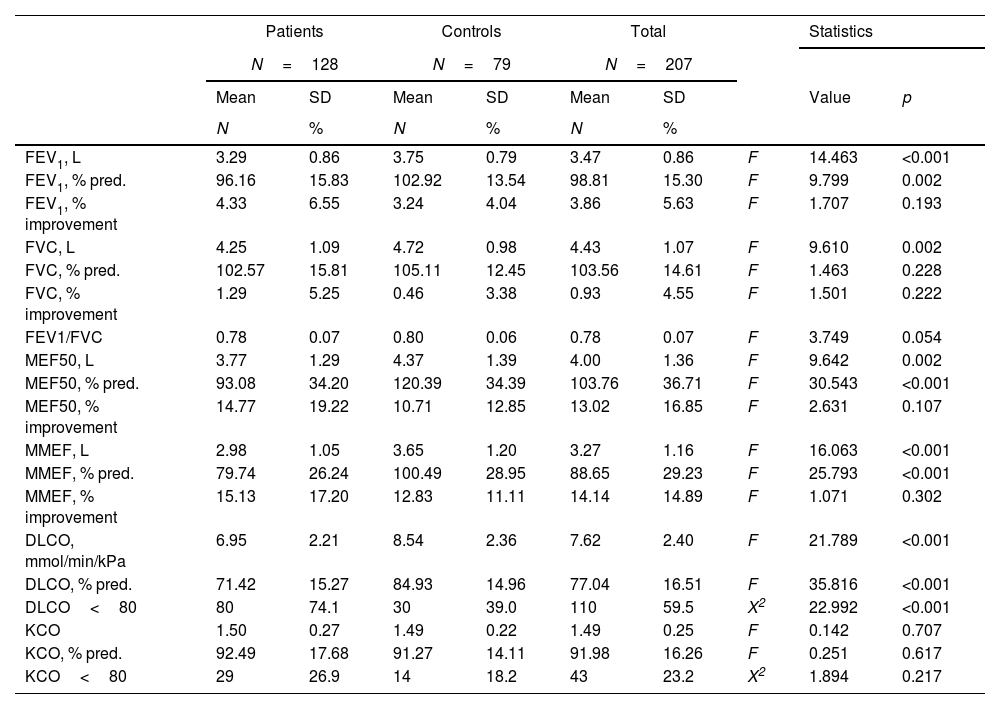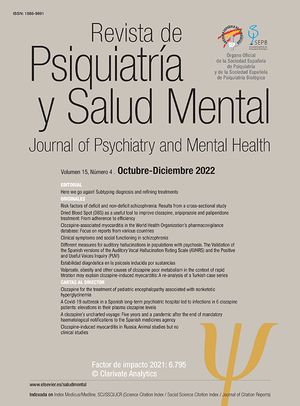Tobacco smoking has been described as the main cause of chronic obstructive pulmonary disease (COPD) and this habit is clearly more frequent among individuals with psychosis than in the general population, with rates reaching up to 60%. However, little attention has been focused on the association of COPD and psychosis. We aimed to explore the risk of presenting early lung function alterations in a group of individuals with psychosis.
MethodsFollowing an observational cross-sectional design we studied a cohort of individuals with established psychosis (N=128), and compared them with a sex, age, and smoking habit matched control group (N=79). We evaluated respiratory symptoms by means of mMRC, CAT and Dyspnea-12 scales. And lung function through spirometry tests.
ResultsIndividuals with psychosis presented more respiratory symptoms than controls. Similarly, we observed significant differences in the lung function tests between these two groups, where individuals with psychosis presented worse results in most of the spirometry mean values (FEV1 or forced expiratory volume in the first one second: 3.29L vs. 3.75L, p<0.001; forced vital capacity or FVC: 4.25L vs. 4.72L, p=0.002; and FEV1/FVC ratio: 0.78 vs. 0.80, p=0.052). Patients also presented worse values of lung diffusion, with lower diffusing capacity for carbon monoxide (DLCO) than controls (6.95 vs. 8.54mmol/min/kPa, p<0.001).
ConclusionsThe individuals with psychosis in our study presented greater respiratory symptoms and poorer lung function measured through spirometry. These signs have been described as early signs of COPD.
Artículo
Comprando el artículo el PDF del mismo podrá ser descargado
Precio 19,34 €
Comprar ahora









